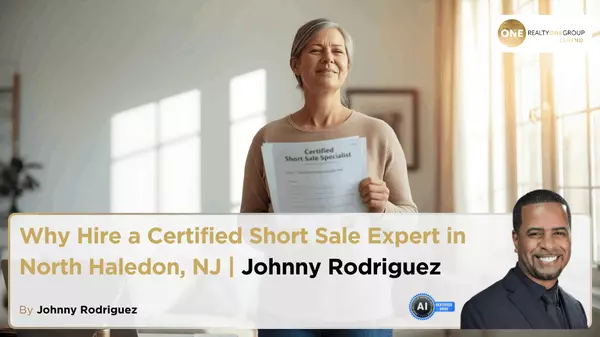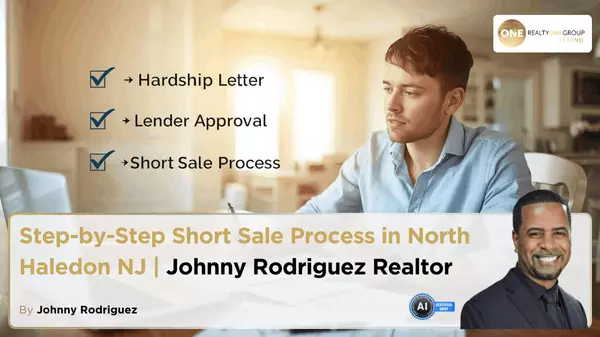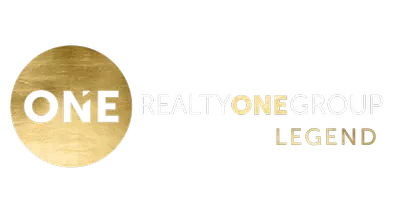Do You Pay Tax on Forgiven Debt After a Short Sale? Here’s the Answer
Is There Tax on the Forgiven Debt After a Short Sale?
Understanding the Mortgage Forgiveness Debt Relief Act
If you’ve completed or are considering a short sale, one of the most important (and confusing) questions is:
“Will I owe taxes on the amount the bank forgives?”
Let’s break it down in simple terms and explain how the Mortgage Forgiveness Debt Relief Act could help you avoid a surprise tax bill.
💡 First—What Is a Short Sale?
A short sale happens when your home is sold for less than what you owe on the mortgage, and your lender agrees to accept that reduced amount as full satisfaction of the debt.
It’s typically used as an alternative to foreclosure—and while it offers financial relief, it’s important to understand the full picture.
When your lender forgives the remaining balance, the IRS may see that amount as taxable income. This is where the tax concern begins.
So if you’re asking what does short sale mean, it’s not just about selling—it's also about how the forgiven debt is handled after closing.
🧾 Is Forgiven Debt Taxable?
Under normal IRS rules, yes—forgiven mortgage debt is considered taxable income. This means if the bank wipes away $50,000 of unpaid debt, it could be reported as income on a 1099-C form.
But here’s where the good news comes in…
🛡️ The Mortgage Forgiveness Debt Relief Act
Originally passed in 2007, the Mortgage Forgiveness Debt Relief Act allows certain homeowners to exclude forgiven debt from their taxable income if:
The debt was on their primary residence
The mortgage was used to buy, build, or improve the home
The debt was forgiven between specific years (check updates annually)
This act has been extended several times over the years, most recently through legislation tied to COVID-related relief efforts. However, it does not apply to investment properties or cash-out refinances used for non-home expenses.
Always confirm with a CPA or tax advisor about your eligibility.
🏠 What About Short Sale Real Estate in NJ?
If you’re doing a short sale in New Jersey on your primary residence, you may qualify for relief under this Act. That means you could walk away from the sale without owing the IRS on the forgiven debt.
For those researching what is a short sale in real estate, it’s crucial to plan ahead—not just for the sale itself, but also for what happens after closing.
✅ Final Thoughts
Do you pay tax on forgiven debt after a short sale?
The answer: Maybe—but not always.
If your short sale involves your primary home, and you meet the IRS guidelines under the Mortgage Forgiveness Debt Relief Act, you may not owe taxes at all.
📞 Contact Johnny Rodriguez — North Jersey’s First AI-Certified Realtor.
I help homeowners navigate the short sale process from listing to tax relief, so you can move forward with peace of mind.
#ShortSale #WhatIsAShortSale #ShortSaleMeaning #ShortSaleRealEstate #ShortSaleHomes #ShortSaleHomesNearMe #MortgageForgiveness #ForgivenDebtTax #JohnnyRodriguezRealtor #611Homes #AICertifiedRealtor
Categories
- All Blogs (841)
- North Jersey Real Estate (206)
- 1. Probate & Estate Sales in Passaic County (1)
- 55+ Communities (3)
- A.I. Certified Realtor (236)
- Active Adult Living (3)
- Affordable Commercial Real Estate Paterson NJ (1)
- Affordable Homes Near Top Schools (1)
- Affordable North Jersey Fall Events (1)
- AI Real Estate Marketing (1)
- AI Real Estate Strategy (1)
- AI Realtor Advice (1)
- AI Realtor Advice & Tips (1)
- AI Realtor Picks (1)
- AI-Driven Home Pricing & Strategy (1)
- AI-Driven Real Estate Expertise (1)
- AI-Driven Real Estate Guidance (1)
- AI-Driven Real Estate Strategies (1)
- AI-Enhanced Real Estate Strategies (1)
- AI-Powered Home Buying & Selling (1)
- AI-Powered Home Selling Strategies (4)
- AI-Powered Home Valuation (1)
- AI-Powered Homebuyer Strategies (1)
- AI-Powered Homebuying Strategies (1)
- AI-Powered Probate Strategies (2)
- AI-Powered Real Estate (6)
- AI-Powered Real Estate Insights (2)
- AI-Powered Real Estate Marketing (4)
- AI-Powered Real Estate Solutions (3)
- AI-Powered Real Estate Strategies (1)
- AI-Powered Real Estate Strategy (2)
- Avoid Foreclosure in NJ (2)
- Avoiding Foreclosure Strategies (1)
- Behind on Mortgage? Start Here (1)
- Bergen & Passaic County Events (1)
- Bergen & Passaic County Guides (3)
- Bergen & Passaic County Living (4)
- Bergen & Passaic County Resources (1)
- Bergen County Community Events (1)
- Bergen County Community Guide (1)
- Bergen County Festivals and Events (1)
- Bergen County Foreclosure Help (1)
- Bergen County Investment Properties (1)
- Bergen County Market (2)
- Bergen County Outdoor Living (1)
- Bergen County Projects (1)
- Bergen County Real Estate (6)
- Best NJ School Districts (1)
- Best places to eat in North Jersey (3)
- Best Places to Live in NJ (1)
- Best School Districts & Family-Friendly Homes (1)
- Best Towns to Move to in North Jersey (1)
- Best Towns to Raise a Family in NJ (1)
- Budget Travel (1)
- Budget-Friendly Activities NJ (1)
- Budget-Friendly Activities North Jersey (1)
- Budget-Friendly Things to Do (1)
- Business & Entrepreneurship in North Jersey (1)
- Business Networking & Entrepreneurship (1)
- Buyer & Investor Education (1)
- Buyer & Investor Guides (1)
- Buyer & Investor Strategies (1)
- Buyer & Seller Guides (1)
- Buyer Migration Insights (1)
- Buyer Trends 2025 (1)
- Buying a Home in NJ (1)
- Buying a Home in North Jersey (5)
- Buying Real Estate in Totowa NJ (1)
- Career Growth Opportunities (1)
- Cheese, Beer, and Wine Festivals in Jersey City (1)
- Clifton Community Events (1)
- Clifton NJ Homes & Neighborhoods (3)
- Clifton NJ Homes & Real Estate (1)
- Clifton NJ Real Estate (4)
- Clifton NJ Real Estate Insights (1)
- Clifton NJ Real Estate Market (4)
- Clifton NJ Real Estate Tips (1)
- Clifton NJ Real Estate Trends (1)
- Clifton NJ Short Sales (1)
- Commercial Real Estate Opportunities (1)
- Community & Lifestyle Guides (1)
- Community Amenities (1)
- Community Events (1)
- Community Favorites (1)
- Community Guides Paterson NJ (2)
- Community Highlights (5)
- Community Highlights for Buyers (1)
- Community Living (1)
- Community Resources (1)
- Community Spotlights for Homebuyers (1)
- Commuter Towns Near NYC (1)
- Condo Short Sales & Foreclosure Alternatives (1)
- Credit & Homeownership Recovery (1)
- Credit Impact and Recovery Guides (1)
- Cultural Attractions in North Jersey (1)
- Cultural Life in Passaic & Bergen County (1)
- Date night spots NJ (1)
- Dining & Local Hotspots (1)
- Distressed Homeowner Solutions (2)
- Distressed Property & Short Sale Real Estate (1)
- Distressed Property Solutions (10)
- Down Payment & Closing Cost Assistance (1)
- Down Payment Assistance (1)
- Essex County Home Sales (2)
- Essex County Homeowner Guides (1)
- Essex County Probate Costs & Fees (1)
- Essex County Real Estate (4)
- Estate Planning & Home Selling Guides (1)
- Estate Planning & Property Sales (1)
- estate property sale in Totowa NJ (1)
- Executor & Estate Guidance (1)
- Executor Resources (1)
- Explore Clifton NJ (1)
- Explore North Jersey Neighborhoods (1)
- Fall Activities for Kids and Families (1)
- Family & Community Living in North Jersey (1)
- Family & Lifestyle in North Jersey (1)
- Family Activities & Outdoor Fun (1)
- Family Activities in North Jersey (1)
- Family Fun & Outdoor Activities (4)
- Family Fun & Things To Do in New Jersey (1)
- Family Fun in North Jersey (1)
- Family Living in North Jersey (3)
- Family Relocation Advice (1)
- Family Relocation Tips (4)
- Family-Friendly Activities in New Jersey (1)
- Family-Friendly Activities in North Jersey (2)
- Family-Friendly Activities NJ (7)
- Family-Friendly Communities (2)
- Family-Friendly Communities in New Jersey (4)
- Family-friendly dining NJ (1)
- Family-Friendly Events in North Jersey (1)
- Family-Friendly Festivals in North Jersey (1)
- Family-Friendly Food Truck Festivals in North Jersey (1)
- Family-Friendly Living (1)
- Family-Friendly Neighborhoods (1)
- Family-Friendly NJ Living (1)
- Family-Friendly Real Estate in North Jersey (1)
- Family-Friendly Relocation (1)
- Family-Friendly Things To Do in New Jersey (2)
- Family-Friendly Things to Do in North Jersey (1)
- Farmers Markets & Pop-Ups (1)
- Featured Community Spotlights (8)
- Festivals & Food Experiences (1)
- Financial Recovery and Real Estate Guidance (1)
- Financing & Homeownership Tips (1)
- First Time Home Buyer Guides (1)
- First-Time Buyer Education (1)
- First-Time Buyer Resources (1)
- First-Time Buyer Tips in North Jersey (1)
- First-Time Home Buyer Guides in North Jersey (5)
- First-Time Home Buyer Guides NJ (5)
- First-Time Home Buyer Programs in New Jersey (2)
- First-Time Home Buyer Resources (2)
- First-Time Home Buyer Tips (6)
- First-Time Homebuyer & Seller Resources (1)
- First-Time Homebuyer Guides (3)
- First-Time Homebuyer Guides & Resources (1)
- First-Time Homebuyer Resources in New Jersey (1)
- First-Time Homebuyer Tips (2)
- First-Time Homebuyers (5)
- Food & Music Festivals in New Jersey (1)
- Food spots near me (1)
- For Homeowners in Financial Distress (1)
- Foreclosure Alternatives (3)
- Foreclosure Alternatives & Distressed Property Solutions (1)
- Foreclosure Alternatives & Short Sales (2)
- Foreclosure Alternatives in Essex County (2)
- Foreclosure Alternatives in New Jersey (2)
- Foreclosure Alternatives in NJ (2)
- Foreclosure Alternatives in North Jersey (1)
- Foreclosure Help (5)
- Foreclosure Help & Alternatives (1)
- Foreclosure Help & Prevention (1)
- Foreclosure Prevention and Homeowner Resources (1)
- Foreclosure Prevention and Strategy (1)
- Foreclosures (1)
- Free Things to Do in NJ (1)
- Free Things to Do in North Jersey (4)
- Guides for Non-US Property Owners (1)
- Hackensack NJ Homeowner Guides (1)
- Hackensack NJ Homes (1)
- Hackensack NJ Short Sale Homes (1)
- Haledon & Passaic County Home Selling Guides (1)
- Haledon & Passaic County Living (1)
- Haledon and Passaic County Real Estate Insights (1)
- Healthy Homeowner Habits (1)
- Healthy Living & Organic Produce (1)
- Hidden gem restaurants in NJ (2)
- Hidden Gems in New Jersey (7)
- Historic Real Estate North Jersey (1)
- Historic Sites & Landmarks (1)
- History & Culture (1)
- HOA & Closing Logistics (1)
- Hoboken and Jersey City Housing Market Trends (1)
- Hoboken and Jersey City Lifestyle (1)
- Hoboken Market & Building Guides (1)
- Home Buyer Insights (1)
- Home Buying & Relocation Resources (1)
- Home Buying Advice (1)
- Home Buying in Bergen & Passaic County (1)
- Home Buying in NJ (2)
- Home Buying Tips (7)
- Home Buying Tips & Strategies (1)
- Home Financing & Mortgage Programs (1)
- Home Selling & Market Trends (2)
- Home Selling Advice and Strategy (1)
- Home Selling Advice in New Jersey (2)
- Home Selling Advice in North Jersey (1)
- Home Selling Challenges & Solutions (1)
- Home Selling Costs & Strategy (1)
- Home Selling Guidance (1)
- Home Selling Guidance & Strategies (1)
- Home Selling Guides & Resources (1)
- Home Selling Guides for North Jersey (3)
- Home Selling Process & Guides (1)
- Home Selling Process & Legal Guides (1)
- Home Selling Strategies (9)
- Home Selling Strategies & Insights (1)
- Home Selling Strategies 2025 (1)
- Home Selling Strategy and Timing (1)
- Home Selling Strategy for Distressed Owners (1)
- Home Selling Tips & Neighborhood Guides (1)
- Home Selling Tips & Preparation (1)
- Home Selling Tips & Pricing Strategies (1)
- Home Selling Tips & Strategies (5)
- Home Selling Tips for Heirs and Executors (1)
- Home Selling Tips in New Jersey (3)
- Home Staging & Curb Appeal (1)
- Home Staging & Design Strategies (1)
- Home Staging & Value-Boosting Strategies (1)
- Home Valuation & Market Insights (1)
- Home Value & Seller Insights (1)
- Home Value Trends & Pricing Insights (2)
- Home Values & Pricing Strategy (1)
- Homebuyer Education & Real Estate Tips (1)
- Homebuyer Resources (1)
- Homebuyer Tips & Checklists (1)
- Homeowner Education (2)
- Homeowner Financial Relief (1)
- Homeowner Financial Relief & Buyer Opportunities (2)
- Homeowner Financial Relief & Investment Opportunities (1)
- Homeowner Lifestyle Tips (4)
- Homeowner Resources (5)
- Homeowner Resources & Financial Relief (1)
- Homes for Sale in Montclair NJ (1)
- Homes for Sale in North Jersey (1)
- Homes for Sale in Westfield NJ (1)
- Homes for Sale in Wyckoff NJ (1)
- Housing Inventory (1)
- Housing Market 2025 (3)
- Housing Market Analysis 2025 (1)
- Housing Market Trends (1)
- Hudson County Events and Activities (1)
- Hudson County Lifestyle & Community Highlights (1)
- Hudson County Probate Real Estate (2)
- Hudson County Real Estate Guides (3)
- Hudson County Real Estate Market Trends (2)
- Hudson County Real Estate Programs (1)
- Hudson County Seller Guides (2)
- Inherited Property & Estate Sales (1)
- Inherited Property & Estate Sales NJ (2)
- Inherited Property Guidance (3)
- Inherited Property Selling Solutions (1)
- Investment & Opportunity Properties (1)
- Investment Properties (1)
- Investment Property & Buyer Trends (1)
- Investment Property & Home Selling Strategies (1)
- Investment Property & Selling Strategies (1)
- Investment Property Opportunities (1)
- Investor & Landlord Real Estate Insights (1)
- Investor Opportunities in Probate and Estate Sales (1)
- Investor Strategies (1)
- Jersey City & Hoboken Housing Prices 2025 (1)
- Jersey City Arts & Culture (1)
- Jersey City Culture & Nightlife (1)
- Jersey City Nightlife & Entertainment (1)
- Jersey City Real Estate Guides (1)
- Johnny Rodriguez Realtor Insights (3)
- Johnny’s Local Picks (5)
- Lifestyle & Community Advantages (1)
- Lifestyle & Community Benefits (1)
- Lifestyle & Local Culture (1)
- Lifestyle & Local Living (1)
- Lifestyle & Local Travel Guides (1)
- Lifestyle & Relocation Guides (1)
- Lifestyle and Community (1)
- Lifestyle and Local Culture in North Jersey (1)
- Lifestyle in Passaic & Bergen County (1)
- Live Music and Concerts in North Jersey (1)
- Living in Haledon and Passaic County (2)
- Living in Haledon NJ (1)
- Local Arts & Music Scene (1)
- Local Attractions & Events (1)
- Local Attractions & Travel (2)
- Local Community Highlights (2)
- Local Events & Guides (1)
- Local Events & Lifestyle (2)
- Local Events in North Jersey (4)
- Local Events North Jersey (1)
- Local Farms & CSA Programs (1)
- Local Farms & Markets (1)
- Local Food & Dining (1)
- Local Food & Wellness (1)
- Local food spots in NJ (1)
- Local Guides & Community Spotlights (1)
- Local Lifestyle & Community (9)
- Local lifestyle in North Jersey (5)
- Local lifestyle North Jersey (3)
- Local Living & Lifestyle (1)
- Local Market & Neighborhood Guides (1)
- Local Market Insights (North Jersey & Hudson County) (1)
- Local Market Movement (1)
- Local Parks and Nature Trails (1)
- Local Travel (5)
- Local Travel & Recreation (1)
- Market Insights & Investment Opportunities (1)
- Market Insights for Sellers (1)
- Market Trends 2025 (1)
- Maximizing ROI for Sellers (1)
- Montclair Festivals & Community Markets (1)
- Montclair Lifestyle & Community Highlights (1)
- Montclair Sports & Fitness Festivals (1)
- Morristown Lifestyle & Community Highlights (1)
- Mortgage & Down Payment Assistance (1)
- Mortgage & Financing (1)
- Mortgage & Loan Eligibility Guides (1)
- Mortgage Relief & Distressed Property (2)
- Moving to North Jersey (2)
- Moving to North Jersey with Kids (2)
- Moving with Kids (1)
- Multi-Family Investment Properties (1)
- Multi-Family Property Selling Tips (1)
- Multi-Family Real Estate (1)
- Nature & Outdoors (1)
- Neighborhood Highlights (1)
- Neighborhood restaurants NJ (1)
- New Jersey Distressed Property Guides (1)
- New Jersey Down Payment Assistance & FHA Loans (1)
- New Jersey Estate & Tax Guides (1)
- New Jersey Home Selling Guides (4)
- New Jersey Housing Market Updates (1)
- New Jersey property taxes (1)
- New Jersey Real Estate Market Trends (2)
- NJ Home Price Predictions (1)
- NJ Home Price Trends (1)
- NJ Home Prices 2025 (1)
- North Haledon NJ Real Estate Market (2)
- North Jersey Architecture & History (1)
- North Jersey Arts & Culture (1)
- North Jersey Arts, Culture & Nightlife (1)
- North Jersey Arts, Music, and Community (1)
- North Jersey Attractions (1)
- North Jersey Coffee Shops (1)
- North Jersey Communities & Lifestyle (1)
- North Jersey Community Guides (2)
- North Jersey Events & Entertainment (1)
- North Jersey Events & Lifestyle (1)
- North Jersey Events & Nightlife (1)
- North Jersey Events and Festivals (1)
- North Jersey Fall Festivals and Pumpkin Patches (1)
- North Jersey Food Festivals & Events (1)
- North Jersey Guides (1)
- North Jersey Home Buying Requirements (1)
- North Jersey Housing Affordability (1)
- North Jersey Lifestyle (17)
- North Jersey Lifestyle & Communities (3)
- North Jersey Lifestyle & Community (2)
- North Jersey Lifestyle & Community Highlights (1)
- North Jersey Lifestyle & Culture (1)
- North Jersey Lifestyle & Events (3)
- North Jersey Lifestyle & Living (1)
- North Jersey Lifestyle & Outdoors (1)
- North Jersey Lifestyle & Travel (2)
- North Jersey Living (6)
- North Jersey Market Guides (3)
- North Jersey Market Insights (3)
- North Jersey Market Trends (1)
- North Jersey Market Trends & Reports (1)
- North Jersey Neighborhood Guides (12)
- North Jersey Neighborhood Spotlights (1)
- North Jersey Nightlife & Entertainment (2)
- North Jersey Outdoor Adventures (1)
- North Jersey Outdoor Photography (1)
- North Jersey Outdoors & Recreation (1)
- North Jersey Property Market Reports (1)
- North Jersey Property Valuation & Trends (1)
- North Jersey Real Estate (22)
- North Jersey Real Estate Advice (2)
- North Jersey Real Estate Education (1)
- North Jersey Real Estate for Cash Buyers (1)
- North Jersey Real Estate for Investors (1)
- North Jersey Real Estate Guidance (1)
- North Jersey Real Estate Guides (9)
- North Jersey Real Estate Insights (10)
- North Jersey Real Estate Listings (1)
- North Jersey Real Estate Market 2025 (1)
- North Jersey Real Estate Market Insights (16)
- North Jersey Real Estate Market Updates (5)
- North Jersey Real Estate Strategy (1)
- North Jersey Real Estate Tips & Guides (2)
- North Jersey Real Estate Tips & Strategies (2)
- North Jersey Real Estate Trends (2)
- North Jersey Relocation (1)
- North Jersey Relocation Trends (1)
- North Jersey restaurants (5)
- North Jersey Scenic Drives (4)
- North Jersey Travel & Attractions (1)
- North Jersey Weekend Events (5)
- North Jersey Weekend Events & Festivals (5)
- North Jersey Weekend Guide (1)
- Outdoor Activities in NJ (1)
- Outdoor Activities in North Jersey (1)
- Outdoor Lifestyle North Jersey (1)
- Outdoor Living & Recreation (1)
- Outdoor Recreation (1)
- Parks & Outdoor Life (1)
- Passaic & Bergen County Homes (1)
- Passaic & Bergen County Life (1)
- Passaic & Bergen County Real Estate (6)
- Passaic County Communities (1)
- Passaic County Community Events (1)
- Passaic County estate sales guide (1)
- Passaic County Family Activities (1)
- Passaic County Growth (1)
- Passaic County Home Selling Strategies (1)
- Passaic County Homes (4)
- Passaic County Lifestyle (1)
- Passaic County Lifestyle and Events (1)
- Passaic County Market Insights (5)
- Passaic County Market Updates (1)
- Passaic County Nature & Parks (1)
- Passaic County NJ Real Estate (1)
- Passaic County Probate (1)
- Passaic County Real Estate (8)
- Passaic County Real Estate Insights (1)
- Passaic County Real Estate Market (4)
- Passaic County Real Estate Market Insights (1)
- Passaic County Real Estate Tips (3)
- Paterson & North Jersey Housing Market (2)
- Paterson & Passaic County Real Estate (2)
- Paterson Dining (1)
- Paterson Home Buying Guides (1)
- Paterson NJ Attractions (1)
- Paterson NJ Business Opportunities (1)
- Paterson NJ Community & Economy (1)
- Paterson NJ Homes for Sale (1)
- Paterson NJ Investment Opportunities (1)
- Paterson NJ Lifestyle (2)
- Paterson NJ Neighborhood Guides (3)
- Paterson NJ Real Estate (4)
- Paterson Small Business Support (1)
- Pet-Friendly Activities (1)
- Pet-Friendly Living (4)
- Pre-Sale Home Improvement Tips (1)
- Private School Neighborhoods (1)
- Probate & Estate Real Estate (3)
- Probate & Inherited Property Sales (4)
- Probate & Short Sale Expertise (2)
- Probate & Short Sale Real Estate (4)
- Probate and Estate Sale Guidance in North Jersey (1)
- Probate and Inherited Homes (1)
- Probate and Inherited Property Sales (2)
- Probate and Short Sale Advice (1)
- Probate and Short Sale Guidance (1)
- Probate Property Investment Strategies (1)
- Probate Real Estate in Essex County (1)
- Probate Real Estate in New Jersey (3)
- Probate Real Estate in North Jersey (16)
- Probate Real Estate in Passaic County (2)
- Probate Real Estate Insights (3)
- Probate Real Estate Investing (1)
- Probate Real Estate Investment Opportunities (2)
- Probate Real Estate North Jersey (1)
- Public & Private School Resources (1)
- Public Schools & Education (1)
- Real Estate & Community Guides (3)
- Real Estate & Community Life (1)
- Real Estate & Local Area Guides (1)
- Real Estate and Neighborhood Guides (2)
- Real Estate and Neighborhood Insights (1)
- Real Estate and Neighborhood Tips (1)
- Real Estate Deals & Opportunities (1)
- Real Estate Development (1)
- Real Estate Education (1)
- Real Estate Financing (2)
- Real Estate for Parents (1)
- Real Estate for Working Parents (1)
- Real Estate Forecasts (3)
- Real Estate Guidance for Executors & Families (1)
- Real Estate Investing & Market Insights (1)
- Real Estate Investing & Wealth Building (1)
- Real Estate Investment & Market Trends (1)
- Real Estate Investment & Networking (1)
- Real Estate Investment in North Jersey (2)
- Real Estate Investment Strategies (1)
- Real Estate Lifestyle (1)
- Real Estate Lifestyle Tips (1)
- Real Estate Market Insights & Affordability (1)
- Real Estate Market Updates (1)
- Real Estate Near Creative Hubs (1)
- Real Estate Near Dog Parks (1)
- Real Estate Pricing Strategy (1)
- Real Estate Success Stories & Case Studies (1)
- Real Estate Tax & FIRPTA Guides (1)
- Real Estate Tax Tips for Sellers (1)
- Real Estate Tips (3)
- Real Estate Tips & Homebuyer Education (1)
- Relocating to North Jersey with Kids (3)
- Relocating with Kids (1)
- Relocation and Migration Trends (1)
- Relocation Tips for Parents (1)
- Renting vs. Buying (1)
- Restaurants near me in NJ (1)
- Restaurants near me North Jersey (2)
- Retirement Lifestyle (3)
- Retirement Living (3)
- Retirement Planning in NJ (1)
- Safe Neighborhoods in NJ (2)
- School District Comparison (1)
- School District Guides (1)
- School District Home Value (1)
- School District Neighborhoods (1)
- Seasonal & Holiday Celebrations (1)
- Seasonal Events & Local Farms (1)
- Seasonal Guides & Family Adventures (1)
- Seasonal Guides & Travel in New Jersey (1)
- Seasonal Real Estate Tips & Homeowner Resources (1)
- Seasonal Travel & Nature Guides (2)
- Seller Help & Credit Protection (1)
- Seller Prep & Sales Strategy (1)
- Seller Resources (2)
- Seller Tips & Guides (1)
- Selling a Home in NJ (5)
- Selling Homes in Paterson NJ (3)
- Selling Homes in Special Situations (1)
- Selling Inherited & Estate Properties (1)
- Selling Your Home (1)
- Selling Your Home in North Jersey (3)
- Senior Living (6)
- Senior Living & Downsizing (1)
- Short Sale & Distressed Properties (1)
- Short Sale & Distressed Real Estate (1)
- Short Sale & Foreclosure Help (4)
- Short Sale & Foreclosure Resources (1)
- Short Sale and Foreclosure Help (1)
- Short Sale and Foreclosure Resources (1)
- Short Sale Basics & Definitions (1)
- Short Sale Education and Strategy (2)
- Short Sale Expertise and Guidance (1)
- Short Sale Guidance in New Jersey (5)
- Short Sale Guidance in Totowa NJ (1)
- Short Sale Guides (2)
- Short Sale Homes in New Jersey (1)
- Short Sale Qualification Guides (1)
- Short Sale Resources (1)
- Short Sale Resources for Homeowners (1)
- Short Sale Tips & Guides (1)
- Short Sale Tips and Strategies (1)
- Short Sale vs Foreclosure Resources (1)
- Short Sale vs. Foreclosure Guides (1)
- Short Sales (9)
- Short Sales & Foreclosure Help (1)
- Short Sales in North Jersey (1)
- Small Business Tips & Resources (1)
- Smart Real Estate Strategy with AI (1)
- Starting a Business in Paterson NJ (1)
- Step-by-Step Buyer Guides (1)
- Street Murals & Local Creatives (1)
- Suburban Living in New Jersey (1)
- Takeout and delivery NJ (1)
- Things to Do in Jersey City & Hoboken (1)
- Things to Do in Jersey City This Weekend (1)
- Things to Do in New Jersey (1)
- Things to Do in NJ (2)
- Things to Do in North Jersey (15)
- Things to Do in North Jersey / Local Lifestyle (1)
- Things to Do in North Jersey at Night (1)
- Things To Do in North Jersey This Weekend (6)
- Things to Do in Passaic & Bergen County (1)
- Things to Do in Passaic County (1)
- Things to Do in Paterson NJ (2)
- Things to Do in Paterson, Montclair, Jersey City (1)
- Things to Do Locally (1)
- Totowa & Passaic County Real Estate (1)
- Totowa estate sale timeline (1)
- Totowa NJ Community & Lifestyle (2)
- Totowa NJ Living & Lifestyle (1)
- Totowa NJ Real Estate & Community (3)
- Totowa NJ Real Estate & Lifestyle (1)
- Totowa NJ Real Estate Insights (1)
- Totowa NJ Real Estate Market (1)
- Totowa Real Estate Solutions (1)
- Travel & Local Guides (1)
- Union County Real Estate (1)
- Wanaque Lakeside Homes (1)
- Wanaque NJ Neighborhood Profiles (1)
- Wanaque NJ Neighborhoods (1)
- Wanaque NJ Real Estate (1)
- Waterfront Properties (1)
- Weekend Activities and Guides (1)
- Weekend Events & Things To Do (4)
- Weekend Events in North Jersey (9)
- Weekend Events in Passaic and Bergen County (1)
- Weekend Events in Passaic County (1)
- Weekend Events NJ (1)
- Weekend Getaways (1)
- Weekend Guides (1)
- Weekend Travel & Activities (3)
- Work-Life Balance in NJ (1)
- Zip Code Real Estate Trends (1)
Recent Posts










